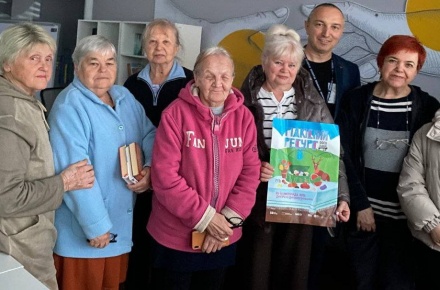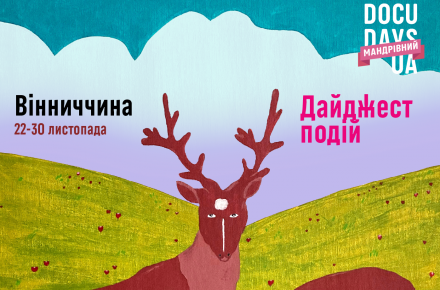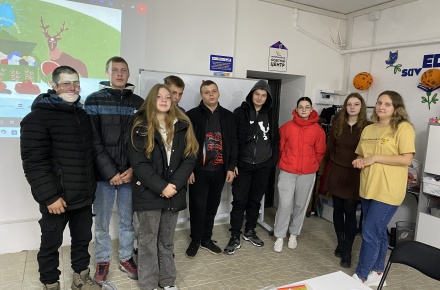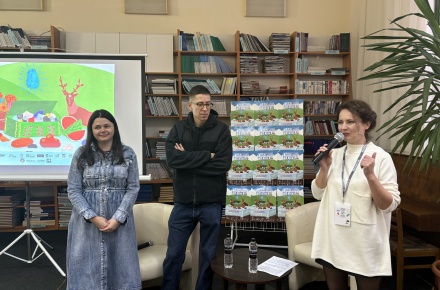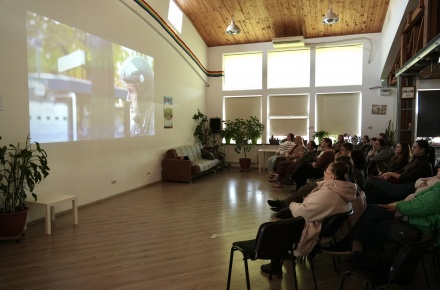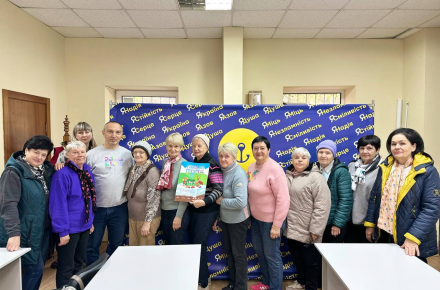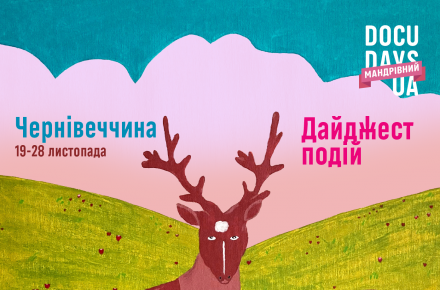“About сomplex things in simple words”: Director Daria Penkova on her film, the war, and the search for sincerity
“About сomplex things in simple words”: Director Daria Penkova on her film, the war, and the search for sincerity
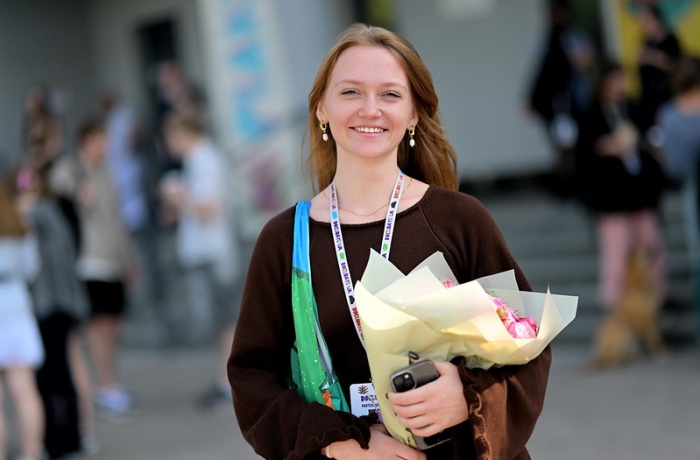
This year’s Travelling Docudays UA programme features the documentary Where’s My Body Armor? by young director and cinematographer Daria Penkova — a film that has already caught the attention of both audiences and the professional community. In the film, Daria is not only behind the camera but also in front of it, alongside soldiers with whom she shares a personal story of trust, understanding, and sincerity.
It should be noted that during the 22nd Docudays UA, the short film Where Is My Armor? received the ANDRIY MATROSOV AWARD 2025.
Every year, the Docudays UA team presents the award to a selected film from the festival's competition program. The Andriy Matrosov Award was established by the organizers of Docudays UA in honor of Andriy Matrosov, the festival's producer, who died in a car accident on February 16, 2010.
We spoke with the filmmaker about how the film was born, why she isn’t afraid of simplicity, and how this work has changed her personally
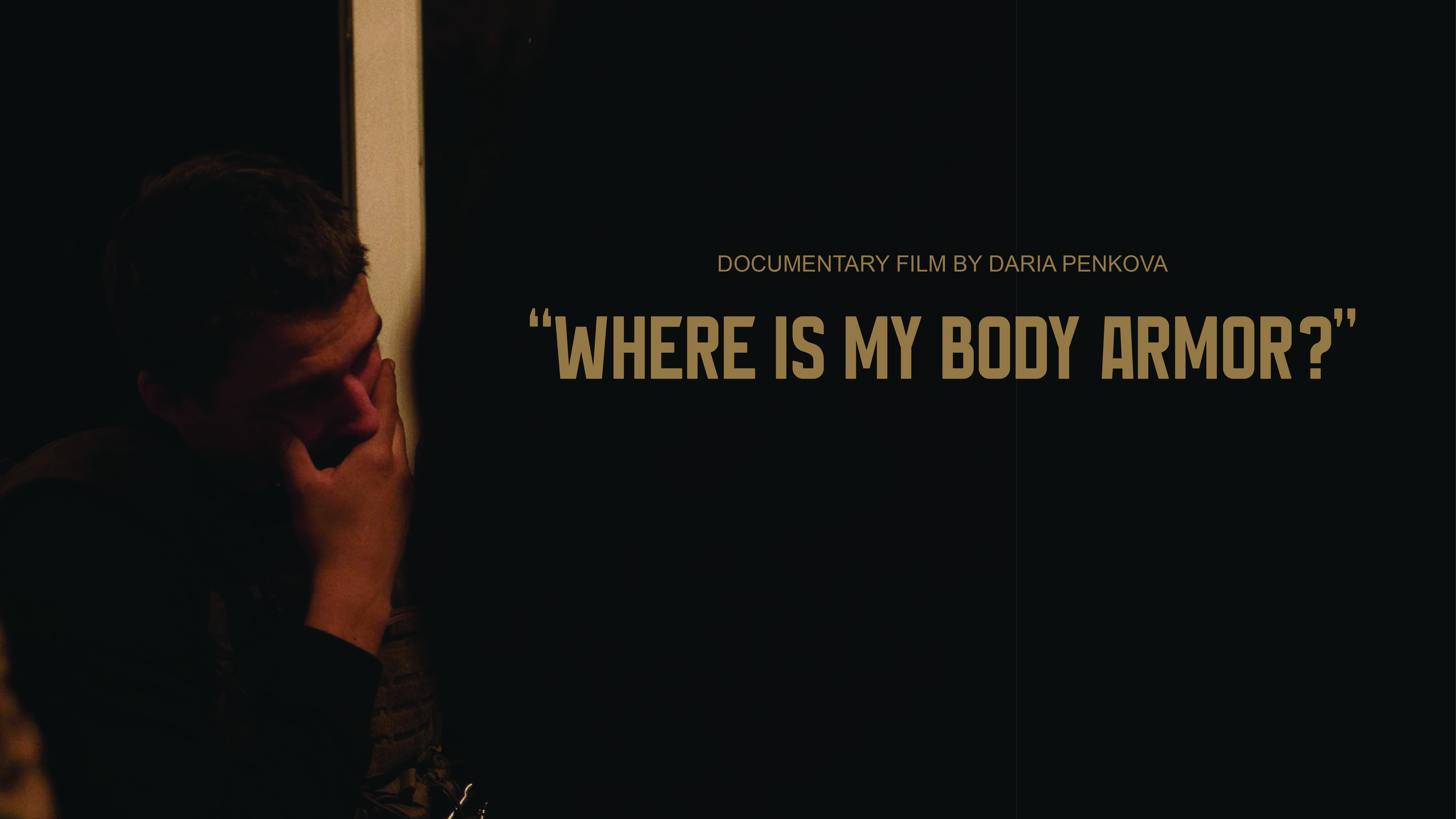
Daria, when you were creating this film, what did you want the viewer to feel and experience along with you?
When I was collecting the material, I didn’t yet know what the story would become. I only understood that I had these “living” moments that needed to be brought together into something whole. I wanted the audience to see something simple, told in simple words — maybe even with a touch of humour. In the film, I am just as I am: delicate, feminine, sometimes childish, but at the same time “one of the guys.” I wanted the viewer not to be afraid of the subject, not to fear the war, but to perceive it through my eyes, through human interaction with the soldiers.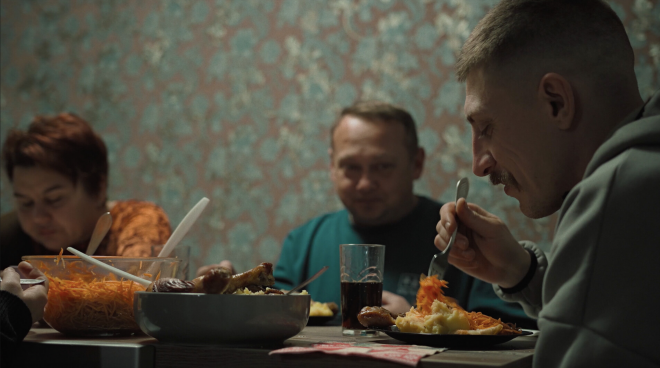
Photo: still from the film “Where's My Body Armor?”
Weren’t you afraid that your film might get lost among the numerous stories about the war?
Of course, the war is now an immense field for creativity. But the main thing is to find your own perspective. At first, I wanted to make a film about the difference between Ukraine and Germany, where I was living at the time. And I didn’t have accreditation to go to the front.
My brother and I remembered Andrii, a soldier I knew, and I thought about doing a Zoom interview with him. But I realised there were already too many such conversations, people were tired of screens and Zooms. I wanted live contact, presence.
So I simply took my camera, went there — and later realised: this was a moment that would never happen again.
You mentioned that the filming moment was special for you. In what sense, exactly?
It was a moment of awakening. At that time, I was living abroad, while my relatives were in Druzhkivka, near the frontline. When you’re far away, it’s as if you’re looking at everything through blurred glass.
But when you come, talk to the guys, see everything up close, you begin to truly understand reality. And that completely changes your perception.
I think every frame that appeared in front of the camera was not accidental. For example, the moment when one of the soldiers is crying — I instinctively turned the camera at that exact second. And I realised I was simply lucky to be in a place where life itself was composing the shots.
How did you manage to build trust with the soldiers? It’s not an easy situation for filming.
Yes, it’s always a delicate balance. The guys had the right to privacy, and of course I heard things like, “Put the camera away,” “Stop filming.” But I felt safe because Andrii, my main protagonist, was there with me.
Another protagonist, Martyn, at first asked me directly, “Why are you filming this?” And then he said a phrase that became pivotal for me: “Film the truth. We don’t want any sugar-coated images.”
I think that very honesty is what made the film what it is.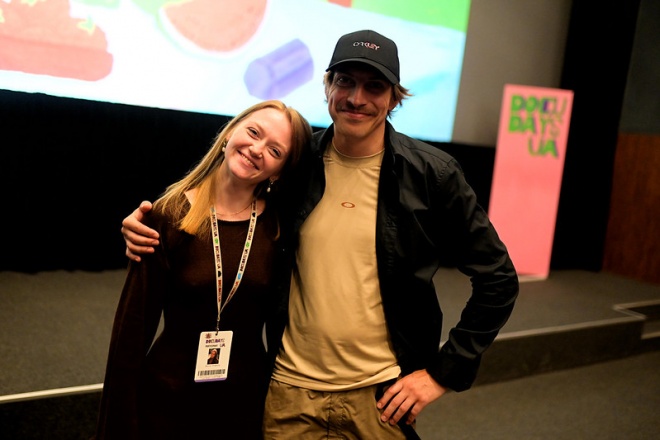 Photo: Stas Kartashov. Daria Penkova, director, and Andriy, the film's protagonist
Photo: Stas Kartashov. Daria Penkova, director, and Andriy, the film's protagonist
You often talk about intuition and chance in documentary filmmaking. How did this experience change you personally?
First of all, I decided to return to Ukraine. After filming, I realised that this is where I wanted to live and work.
This film taught me to trust myself as an author. It showed me that even a simple story can resonate with people if it’s genuine.
When the film was screened at Docudays UA, the audience laughed — I hadn’t even expected there to be so much humour in it. Now I’m taking it to Berlin, and I’m curious to see how an international audience will perceive it.
Perhaps most importantly, this film gave me faith in myself. And the understanding that I’m where I’m meant to be.
How did the protagonists and your loved ones react to the film?
I was most nervous about showing it to Andrii. We were editing the film together with Vita Stoikova and spent a long time figuring out how to end the story.
That’s how the idea of the final phone call was born, where I asked Andrii, “Why didn’t you see me off?” It was improvised; I didn’t know how he would respond. And he answered in his own way, honestly, like a friend.
At the Kyiv premiere, Andrii came with the guys, and they said I had shown their truth. That was probably the most valuable moment for me.
And when my brother said, “You really did a great job,” I knew it had all been worth it.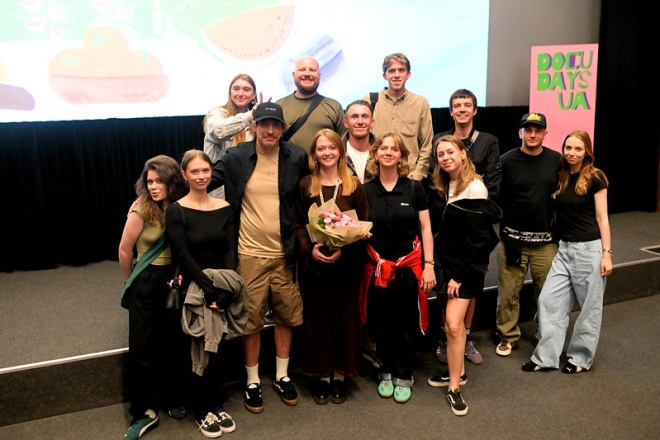 Photo: Stas Kartashov. Premiere of Where Is My Armor? at the 22nd Docudays UA festival
Photo: Stas Kartashov. Premiere of Where Is My Armor? at the 22nd Docudays UA festival
Simplicity, sincerity, and humour — these are the three things the audience definitely remembers after watching your film.
Yes, because life itself is like that. Simple Druzhkivka, simple people, and me — simple but open. And if that simplicity evokes warmth in people, then it means everything worked out.
Daria Penkova’s film is demonstrated in the programme of the 22nd Travelling Docudays UA Festival.
Find out more about the screenings in your city on the Festival’s website: travelling.docudays.ua.
The 22nd Travelling Docudays UA is held with the financial support of the European Union, the Embassy of Sweden in Ukraine, and International Media Support. The opinions, conclusions or recommendations do not necessarily correspond to the views of the European Union, the governments or charities of these countries. Responsibility for the content of the publication lies solely on its authors.








